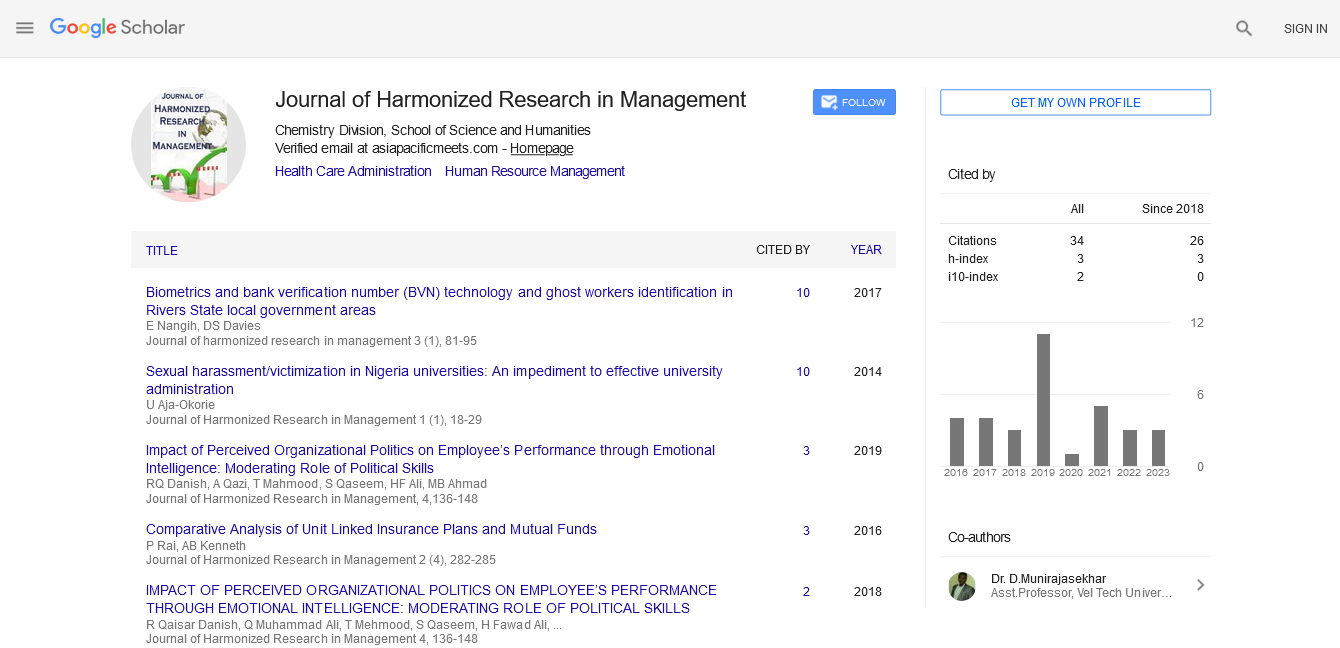Perspective - (2022) Volume 8, Issue 1
MANAGEMENTS AND PROJECTS OF TECHNOLOGY DEVELOPMENTS
Jamie Jasmine*Received: Mar 02, 2022, Manuscript No. JHRM-22-62995; Editor assigned: Mar 07, 2022, Pre QC No. JHRM-22-62995(PQ); Reviewed: Mar 21, 2022, QC No. JHRM-22-62995; Revised: Mar 28, 2022, Manuscript No. JHRM-22-62995 (R); Published: Apr 07, 2022, DOI: 10.30876/2454-5384.22.08.126
Description
Technology is the result of the constant evolution of accumulated knowledge and applications in all technologies, skills, methods and processes used in industrial production and scientific research. Technology is built into the operation of all machines for the intended purpose of the organization, with or without detailed knowledge of its features. Social technology consists of so-called systems. The system accumulates technology by receiving inputs, modifying them for the intended purpose of the system.
The process and producing results that change the final intended purpose of the system, apply the intended application of knowledge. This is also known as a technology system or information system. The earliest and simplest form of technology is the development of knowledge that leads to the application of basic tools for the intended purpose. Prehistoric inventions of carved stone tools and the discovery of ways to control fire and increase the food sources available to humans through proper cooking methods eliminate the pathogens that cause almost all diseases in food sources.
The subsequent Neolithic Revolution expanded the meaning of the event and quadrupled the food available from the available areas through the development of agricultural technology. The invention of the wheel led to the technology of travel. This not only helped people continue to increase the yield of food production over a period of time, but also helped them travel in less time between regions where information was exchanged more easily. This situation not only led to an increase in overall food production and information exchange over a wide area, but also to an increase in the production of raw materials such as spun yarn due to the invention of the spinning wheel. Since these raw materials can be processed into paper, it also has the potential to make information available to more people in this history. The development of wheel usage has led not only to the development of printing presses, but also to the development of telephones, computers, and ultimately the Internet. In other words, as technology overtakes the wheels, the exchange of information over telephones, computers, and the Internet has begun to work more accurately through the input and output capabilities of processors known as central processing units (CPUs). As the focus shifted from further wheel advances to CPUs, we also began to focus on studying the advances in storage devices behind central processing units.
As a result of the continued focus on processor and storage device research, not only has technology development increased information exchange, but people ultimately have little or irregulation have self- regulation. The development of society that has paved the way for operational technology by breaking down previous barriers to communications and achieving technical self- regulation with the research advances needed for computer components, civilizations are very likely to experience the technological singularity in the future. While technological and technological advances are ultimately the pursuit of the technological singularity of society, have helped economic development and created the rise of leisure classes, many technological processes are polluting and the global environment of natural resources. It produces an unwanted byproduct known as depletion. The result is a philosophical debate about the use of technology and whether it improves or worsens the human condition. Neo-Luddite, anarcho-primitimatism, and similar reactionary movements criticize the spread of technology, claiming that it harms the environment and destroys relationships, but ideologies such as trans-humanism and techno-progression see continuous technological progress as beneficial to the social and human condition. Technology continues to be questioned, but the key functions of technological progress as the core of industrial production and scientific research continue to flourish and innovation has always influenced social values and raised new questions about technology ethics, but advances in technology itself have also led to the search for new solutions to the aforementioned concerns about technological progress. For example, future technologies will include renewable resources used for transportation to enable people to travel in space, making the technology itself more affordable and reliable for billions of people. Society will drive the importance and application of technology in the 21st century as it creates the necessary solutions to our concerns through intellectual discovery.

Google Scholar citation report
Citations : 92
Journal of Harmonized Research in Management received 92 citations as per google scholar report









